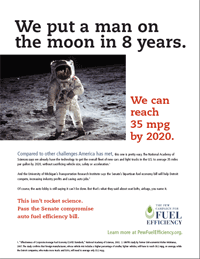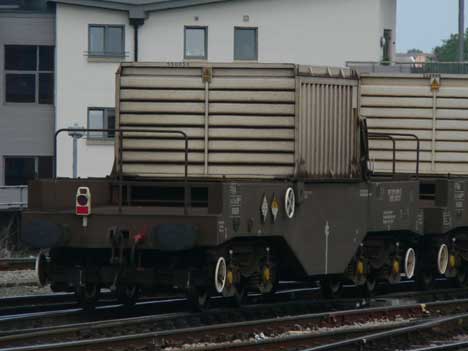This is a guest post by Lorna Li, of Lorna Li : Green 2.0 Marketing.
 As oil prices skyrocket and the climate heats up, the debate around the 2007 Energy Bill, currently being debated in U.S. Congress behind closed doors, is getting hotter. Environmentalists, students, rock stars, and even auto industry workers in the United States are clamoring for a strong, clean 2007 Energy Bill that includes high fuel efficiency standards, more renewable electricity and no nukes. The U.S. auto industry is contentiously divided, as American students rally across the nation, and everyone launches YouTube video campaigns.
As oil prices skyrocket and the climate heats up, the debate around the 2007 Energy Bill, currently being debated in U.S. Congress behind closed doors, is getting hotter. Environmentalists, students, rock stars, and even auto industry workers in the United States are clamoring for a strong, clean 2007 Energy Bill that includes high fuel efficiency standards, more renewable electricity and no nukes. The U.S. auto industry is contentiously divided, as American students rally across the nation, and everyone launches YouTube video campaigns.
Can the U.S. Ever Reach 35 mpg by 2020?
The United States Congress is hard-pressed to choose between 2 fuel efficiency standards – the 35 mpg Corporate Average Fuel Economy (CAFE) Standard, which was approved by the Senate in June, and the U.S. Auto Industry counter-proposal of 32 mpg by 2022.
A large group of auto workers and dealers have broken from the industry in order to support the 35 mpg by 2020 fuel efficiency standard. As oil prices continue to rise, what is at stake in the debate over fuel efficiency is the future of the American auto industry and the livelihood of U.S. autoworkers, not to mention the wallets of American drivers in the years to come.
Adam Lee, a third generation auto dealer, makes this personal plea in his 3-minute video clip.
“My family has been selling American made cars since 1936. My livelihood and the livelihood of over 350 employees who work for us depend upon the success of the automobile industry. Today that strength is severely compromised by the lack of fuel-efficient cars and trucks customers want to buy. …
Without a 35 mile-per-gallon mandate, I’m afraid, global warming and our dependence on foreign oil will continue to get much worse in the long run. And, in the short run, I’m afraid I’ll be stuck with a lot full of cars that no one wants to buy or even worse: This country will no longer have an American auto industry.”
To emphasize the difference between the 2 fuel efficiency proposals, the Pew Campaign for Fuel Efficiency delivered Trick or Treat bags to members of Congress, illustrating the Spooky Truth about the32 mpg by 2022 Auto Lobby proposal.
Read More »The 2007 Energy Bill – Can the U.S. Ever Green Its Energy Policy?

 As oil prices skyrocket and the climate heats up, the debate around the 2007 Energy Bill, currently being debated in U.S. Congress behind closed doors, is getting hotter. Environmentalists, students, rock stars, and even auto industry workers in the United States are clamoring for a strong, clean
As oil prices skyrocket and the climate heats up, the debate around the 2007 Energy Bill, currently being debated in U.S. Congress behind closed doors, is getting hotter. Environmentalists, students, rock stars, and even auto industry workers in the United States are clamoring for a strong, clean